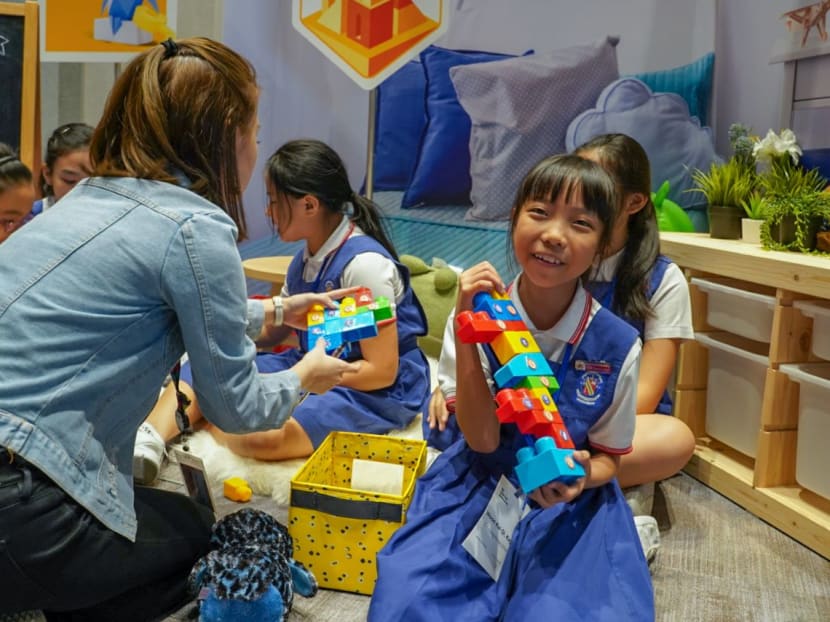Students pick up tips on staying safe online – and being kind
SINGAPORE — Many Singaporeans are familiar with the Road Safety Park, but 44 students from CHIJ Katong Primary and North View Primary School were the first to experience the Google Online Safety Park on Friday (April 26) at the tech giant’s office.
SINGAPORE — Many Singaporeans are familiar with the Road Safety Park, but 44 students from CHIJ Katong Primary and North View Primary School were the first to experience the Google Online Safety Park on Friday (April 26) at the tech giant’s office.
The project tackles some concerns of parents and teachers about digital literacy and habits among young children, based on a recent survey by Google.
The concerns were:
Privacy and security
Sharing information with care
Inappropriate content
Preventing cyber bullying
WHAT DO STUDENTS DO AT THE PARK?
The interactive experience featured four stations, each simulating a daily online experience centred on one of the concerns raised in the survey.
Students were challenged to literally “build” strong passwords using toy building blocks in “The Bedroom”, where blocks of different sizes had a letter of the alphabet, number or symbol attached.
Emily Seow, 10, a student at CHIJ Katong Primary, said: “It teaches us that if you build a very strong structure, you will have a safer password. But if you build a thin structure and it falls down, it means that your password is too weak.”
The “Playground” involved the game of hopscotch with a twist — students could only advance if they were able to correctly answer questions about cyber bullying.
For instance, the students could take a step forward only if they agreed not to share hateful and biased messages online.
In “The Living Room”, students sorted soft toys describing different types of online content and messages into different bins.
Each bin represented a different action: Report the problem, ignore it or talk directly to a trusted adult.
Stefanie Dowideit, 11, a student at CHIJ Katong, said: “For example, when you get bullied, you have to tell your parents or a trusted adult,”
Students were quizzed about privacy and security at “The Bus Stop”. They learnt tips on protecting their privacy, such as not sharing their personal details online.
WHY IT MATTERS
Mr Lucian Teo, Google's user education and outreach manager for trust and safety, said that the online identities of children who grew up with the Internet are akin to their real identities.
He highlighted the importance of teaching children how to protect themselves and to be kind to one another.
Ms Nazrah Mohamad Latiff, 34, a teacher at North View Primary School, noted that students have mobile phones, even in primary school, and are exposed to things such as cyber bullying through WhatsApp groups and other platforms,
“With this kind of education, children are exposed to solutions, such as who they should go to for help when they are bullied online,” she said.
WHAT’S NEXT?
The Online Safety Park is a one-time event, but Google may invite more schools or members of the public, Mr Teo said.
In the meantime, it is looking to help families address the topic of online safety by organising workshops for parents.
Google has organised about 20 of these workshops in the past 18 months and has reached more than 1,000 families, Mr Teo added.










